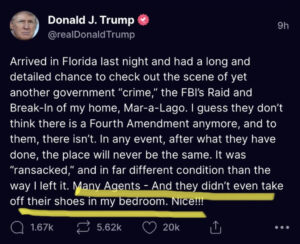Florida Governor Ron DeSantis wants his state to control the quantities of medicinal marijuana sold to individual consumers.
With the high cost of cannabis, patients usually titrate their dosages to adjust for the various potencies of the product and their own health requirements. However, a new emergency rule implements Florida’s statute section 381.986(4)(f) and sets a 35-day, 2.5-ounce possession limit on smokable marijuana, while a 70-day limit of 24,500 milligrams (0.864212 ounce) of THC was set on vapor or edible products. Patients must find a doctor to apply for an exemption if they need more than the legal maximums.
Delays in processing the applications are inevitable. The rule also poses many problems for elderly retirees who will not be covered for medicinal marijuana by Medicare or their health insurance and who might wish to save money on healthcare costs by growing their own. No actual, arbitrary or capricious explanation appears to have been offered for how or why the stipulated quantities of cannabis were chosen. Floridians should know by now that what’s easy for their state doesn’t always make it convenient for the individual. Why not just round up the 70-day limit on processed THC from 0.864212 ounce to 1.0 ounce to make it easier to remember?
Unfortunately, Governor DeSantis is known for treading heavily in medical fields where he doesn’t belong. Like in 2021 when he resisted imposing face mask mandates or vaccination requirements such as providing proof of vaccinations to businesses, restaurants, schools, colleges, cruise ships, government and healthcare facilities. His professional career began as a member of the Judge Advocate General’s Corps (JAG) in the Navy (2004 – 2010), where as a commissioned officer, he conducted prosecutions at Guantanamo. It will be interesting to see how Ron DeSantis’s Guantanamo-style doctoring plays out should he end up running for president in 2024 or beyond.


